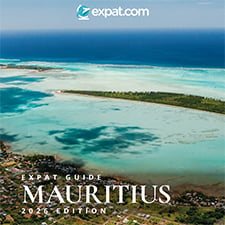Mauritius has a well-developed public transport network, although the frequency and working hours might not work for all your ...
Living in Mauritius guide for expats
All the information you need to relocate and live in Mauritius.
The expatriate guide to Mauritius is your reference tool to carry out your expatriation project for you and your family. You will find useful information and advice on how to make a success of your life in Mauritius
Our selection of articles for expatriation in Mauritius
The list below contains emergency numbers in Mauritius, should you be in need for assistance at any ...
Opening a bank account in Mauritius can help you in many ways, including receiving your salary, paying your monthly bills, making ...
Health is a major issue when moving abroad. Are expats eligible for the Mauritian health system? What are the conditions to be ...
You might be needing medical assistance during your stay in Mauritius. Expat.com provides you with a list of doctors recommended ...
Mauritius is becoming a higher education hub for the region as it offers a great deal of options. Most Mauritian institutions and ...
The Economic Development Board reminds us that any non-citizen, whether an individual or an investor, is allowed to ...
Mauritians rarely use square meters. Instead, you'll often hear measurements like arpent, square foot, perch, and toise.
The Mauritian school system is based on the Anglo-Saxon model and is divided, as is often the case elsewhere, into 3 main stages: ...
Bus, cabs, motorcycle, helicopter, boat and now a light rail system. It is easy to move around Mauritius. The country benefits ...
Mauritius is a world-renowned business center, ranked first in sub-Saharan Africa by the World Bank. It is the most relevant ...
The small, prosperous republic of Mauritius has risen to become one of the most progressive economies in Africa. Its strategic ...
What are public utilities like in Mauritius? How do you get connected to the water or electricity network? What are the ...
When settling abroad, all questions must be dealt with in advance and be answered clearly and comprehensively, but some questions ...
Connecting to a landline, a mobile network, or the Internet will be one of the first things you do when you settle abroad ...
About Mauritius
The island state's political and economic situation has been stable since gaining independence on 12th March 1968, and it was eventually declared a republic in 1992, with a multi-party parliamentary democracy. Mauritius' natural wonders have resulted in the creation of countless luxury resorts, which provide foreign professionals in the tourism sector with five-star job opportunities and beautiful views of the Indian Ocean. Furthermore, a range of water and land-based activities will keep expatriates entertained in their free time ' from kitesurfing, hiking or horse riding after work, to playing golf on championship-standard courses over the weekend.
Wildlife tourism is also gaining in popularity on Mauritius, which has saved more bird species from extinction than any other country in the world; and you can even see giant tortoises roaming freely on île aux Aigrettes!
If that weren't enough, Mauritius deserves a round of applause for its standards of culinary excellence, whether in fine-dining restaurants or beach shacks serving fish fresh off the boat. The varied influences of the island's Indian, French, Chinese, and Creole communities have created a diversity of delicious dishes that will leave you tongue-tied. As will the variety of languages that reflect the range of cultures that exist on the island. The main languages spoken are French, which tends to be used in education and the media; Mauritian Creole, which is a French-based Creole that is spoken by around 90% of the population; and English, which is the official language of parliament. However, most Mauritians are bi-lingual or even tri-lingual, which makes it easier for expats to get by and make friends!
Since the times of being dependent mainly on sugar exports, the island has come a long way. It has built up strong financial services and outsourcing sector, and it now boasts one of Africa's highest per capita incomes. The strong earnings of its tourism industry also contribute greatly to the economy and, luckily for expatriates, future foreign investment and expatriate employment is likely to be welcome to further stimulate growth.
However, the republic does now need to focus on reducing inequality and boosting shared prosperity, as the low employment rate reveals an imbalance in the composition of labour in high-growth sectors. In the face of potentially rapid economic development, education and skills training of the island's inhabitants is imperative, as demand for labour in traditionally low-skilled sectors, such as sugar and textiles, has decreased.
Latest housing offers in Mauritius
Latest job offers in Mauritius










